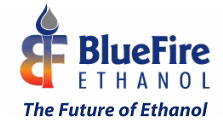 Next year, marks the 100th anniversary of the 1908 New York to Paris “Great Race” and organizers are planning a “Great Race” re-run that will showcase the advances in the automotive industry. Car enthusiasts will be lining up with renewable-fuel powered cars and vintage cars with one mission: to promote hybrid cars cruising around the world on the least amount of fuel possible.
Next year, marks the 100th anniversary of the 1908 New York to Paris “Great Race” and organizers are planning a “Great Race” re-run that will showcase the advances in the automotive industry. Car enthusiasts will be lining up with renewable-fuel powered cars and vintage cars with one mission: to promote hybrid cars cruising around the world on the least amount of fuel possible.
Ten teams driving hybrid electric cars will join the Innovation Class of next summer’s Great Race from New York to Paris and attempt to complete the almost 22,000 mile (35,000 km) course by driving as efficiently as possible. ‘Hypermilers’, as they are known, push the limits of fuel efficiency and achieve unheard of miles-per-gallon readings of as high has 100 mpg.
 This is the first in a series of MPG Challenges, created in partnership with Hybridfest, Inc., organizers of the nation’s largest hybrid car festival. Bill Ewing, chief executive officer of Great Race Sports, Inc., organizer of the event, said he is emphasizing the Great Race to promote major improvements in fuel economy not only through technology, but also by improving personal driving habits.
This is the first in a series of MPG Challenges, created in partnership with Hybridfest, Inc., organizers of the nation’s largest hybrid car festival. Bill Ewing, chief executive officer of Great Race Sports, Inc., organizer of the event, said he is emphasizing the Great Race to promote major improvements in fuel economy not only through technology, but also by improving personal driving habits.
The Great Race celebrates the 100th anniversary of one of the most remarkable automotive events of the 20th century, an automobile race nearly around the world, from New York to Paris in 1908. Following the start in New York City, The Great Race will travel across three continents and 13 countries, reaching more than a billion people. In a repeat of that milestone event, the Great Race will travel across North America, Asia and Europe in 65 days, this time featuring classic cars, renewable fuel powered cars and now hybrid cars.
“Clearly the world has a big fuel problem,” said Bill Ewing.
The commemorative event will start May 30 in New York City and will finish in Paris, France on August 2, 2008.
Read More
 Ethanol is gaining more ground in the motor sports arena and more leagues are getting on board with ethanol-enriched fuel. The American Le Mans Series is now the second racing league to officially commit to a fuel based largely from ethanol. The ALMS has committed to upgrading its official fuel of the series from an E10 fuel blend to an E85 blend for 2008.
Ethanol is gaining more ground in the motor sports arena and more leagues are getting on board with ethanol-enriched fuel. The American Le Mans Series is now the second racing league to officially commit to a fuel based largely from ethanol. The ALMS has committed to upgrading its official fuel of the series from an E10 fuel blend to an E85 blend for 2008.

 One of the keynote speakers at the symposium was
One of the keynote speakers at the symposium was 
 U.S. Bank Morgan Stanley has estimated that global sales from clean energy sources such as wind, solar and geothermal power and biofuels could grow to as much as $1 trillion a year by 2030. In the meantime, the market may hit $505 billion in sales by 2020 — almost 9 times the level in 2005. Not a bad idea to invest, right?
U.S. Bank Morgan Stanley has estimated that global sales from clean energy sources such as wind, solar and geothermal power and biofuels could grow to as much as $1 trillion a year by 2030. In the meantime, the market may hit $505 billion in sales by 2020 — almost 9 times the level in 2005. Not a bad idea to invest, right?
 It seems even entertainers can’t escape the momentum behind the growing renewable and alternative energy movement. Singer-songwriter
It seems even entertainers can’t escape the momentum behind the growing renewable and alternative energy movement. Singer-songwriter  The biggest news for the “Great Race” organizers so far is the prospect of
The biggest news for the “Great Race” organizers so far is the prospect of  Next year, marks the 100th anniversary of the 1908 New York to Paris
Next year, marks the 100th anniversary of the 1908 New York to Paris  This is the first in a series of MPG Challenges, created in partnership with Hybridfest, Inc., organizers of the nation’s largest hybrid car festival. Bill Ewing, chief executive officer of
This is the first in a series of MPG Challenges, created in partnership with Hybridfest, Inc., organizers of the nation’s largest hybrid car festival. Bill Ewing, chief executive officer of